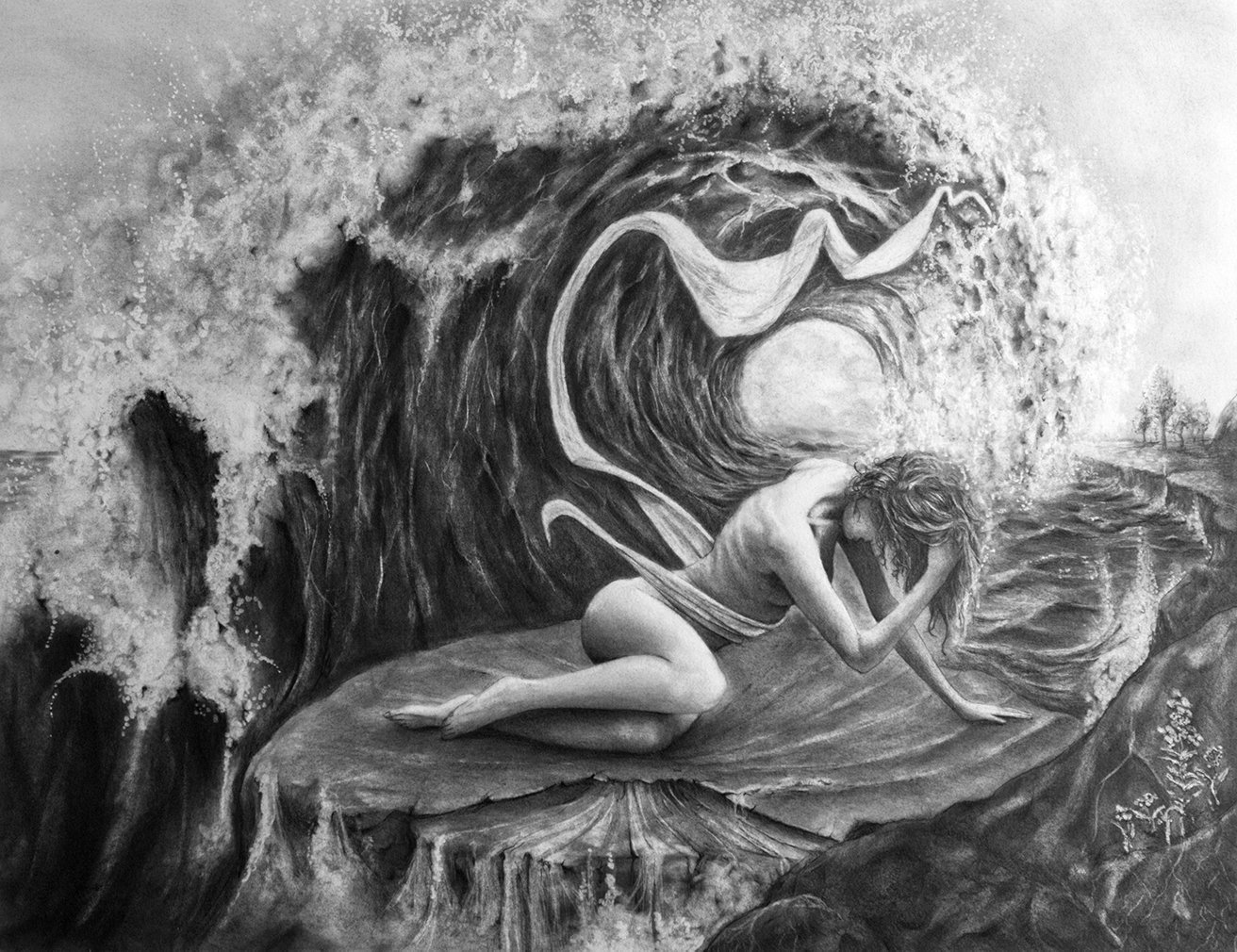
Morning Star
by Duane Teske
September 9th - 30th, 2023
Zorya, Langebrug 40A Leiden
Curated by Agata Laika Mendalka
“How art thou fallen from heaven, O Lucifer, son of the morning! How art thou cut down to the ground which didst weaken the nations! For thou hast said in thine heart, I will ascend into heaven, I will exalt my throne above the stars of God: I will sit also in the mount of the congregation upon the sides of the north: I will ascend above the heights of the clouds; I will be like the most High. Yet thou shalt be brought down to hell, to the sides of the pit.”
lucifer
This was the foundation of the Christian doctrine of the Devil’s attempt to make himself the equal of God and his expulsion from heaven in punishment. As an explanation of the satan’s fall from grace it had the advantage of fitting the tendency of later Jewish and Christian writers to exalt Satan’s status to almost the position of an independent god. Lucifer, it was said, had been the archangel’s name in heaven and Satan was his name after his fall.
Duane Teske, Pandemonium
venus
This passage in Isaiah may refer to a legend of the beautiful morning star who walked in Eden, blazing in jewels and light, and in his insane pride attempted to rival God. Lucifer, son of the morning is in Hebrew Helel ben Shahar, day-star, son of the dawn. The Jews, Arabs, Greeks and Romans identified the morning star as the planet Venus. In Greek, it was called phosphorous and in Latin lucifer, both words meaning light-bearer. It has been suggested that the story of Lucifer may have been based on the observation that the morning star is the last proud star to defy the sunrise, and the belief that it must have been punished for its defiance.
Duane Teske, The Real Birth of Venus
Venus, among the most brilliant celestial objects, has been recognized since ancient times and holds a significant role in human culture dating back to the earliest records. Consequently, it is prominent in human traditions, spirituality, and mythology. It has been revered as sacred by deities in various cultures and has served as a primary muse for writers and poets, often symbolized as both the morning star and the evening star.
Duane Teske, Lunar Rock
“I, Jesus, have sent my angel to testify to you about these things for the churches. I am the root and the descendant of David, the bright morning star. ”
jesus
Jesus Christ is described as the morning star in 2 Peter 1:19 (phosphoros) and in Revelation 2:28 (aster proinos), and he identifies himself as the bright morning star (ho aster ho lampros ho proninos) in Revelation 22:16.
Some scholars suggest that this use of star symbolism aligns with the Old Testament and inter-testament focus on the celestial or heavenly aspects of the future Messiah, as seen in passages like Numbers 24:17 and Malachi 4:2.
Duane Teske, Jesus Amigo
Duane Teske, Poison Ivy
Duane Teske, Madonna Lisa
lost
“Her rash hand in evil hour
Forth reaching to the fruit, she plucked, she ate:
Earth felt the wound, and Nature from her seat
Sighing through all her works gave signs of woe
That all was lost”
paradise
By the first century A.D. Lucifer and Satan and the Watchers had all been connected together, and the serpent of Eden had been added to the story. A book called 2 Enoch says that archangel Satanail tried to make himself the equal of God and seduced the Watchers to rebel with him. They were all banished from heaven and to revenge himself for his fall Satanail tempted Eve in Eden. According to the Vita Adae et Evae, Satan was expelled from his glory among angels because he refused to worship Adam, which the angels were ordered to do by God. Michael told him that God would be angry, but Satan said, If he be wroth with me, I will set my seat above the stars of heaven and will be like the Highest. Then God hurled Satan and his followers down to earth and Satan tempted Eve in revenge. Here the Devil’s rebellion from pride is combined with the idea of angelic jealousy of man…
Duane Teske, Eva
However, Eve remains oblivious to the cosmic disappointment her meal has triggered. Completely satisfied and seemingly intoxicated, she reverently bows before the O Sovereign, virtuous, precious of all Trees. She quickly carries a bough laden with the most beautiful fruit to her beloved Adam, hopeful that he too will partake and reach for divine greatness.
This shared meal, though shadowed by their impending expulsion and impending doom, this moment of them eating together is a touching picture of their love.
The serpent stealthily slinks away in the shadows, having completed its mission. On the other hand, Satan can't wait to boast to his fellow demons about how he ruined everything with just a simple "apple."
“One day we read, to pass the time away
of Lancelot, of how he fell in love;
alone we were, and no Suspicion near us …
then he, who never from me shall separate,
at once my lips all trembling kissed.”
hell
In Dante's epic journey through The Divine Comedy, he and Virgil encounter Francesca and her beloved Paolo in the infernal confines of the second circle, a place designated for those consumed by the fires of lust.
Within this vicious realm, the unfortunate duo remains entangled in an eternal storm, condemned to be ceaselessly swept through the skies, much like they had surrendered to the fierce passions that initially ensnared them.
Guided by his profound empathy, Dante calls out to these lovers, who are momentarily compelled to halt their perpetual motion before him. Engaging Francesca in dialogue, he inquires about the events that led to their eternal damnation. As Francesca unfolds her woeful tale, Dante is so profoundly moved by her narrative that he succumbs to faintness, overcome by an overwhelming sense of pity.
Duane Teske, Paolo and Francesca
“The infernal storm, eternal in its rage, sweeps and drives the spirits with its blast.”








